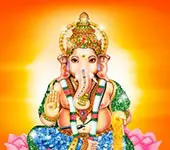In life, finding the real cause of problems is tough. When we miss a promotion, we blame a coworker. We don't think about our lack of skills or effort. In a fight with a spouse, we blame a small issue, like a misplaced item. We ignore years of unresolved problems. When we blame political rivals for the world's troubles, we avoid deeper, systemic issues.
This tendency to focus on the obvious cause, rather than looking deeper, is common. It appears in many legends from our Scriptures. One such legend is about King Parikshit. He first saw himself as a victim of a curse. Later, he realized the deeper reasons for his fate.
King Parikshit was a ruler who valued dharma. One day, during a hunt, he became tired and thirsty. He found Sage Samika's ashram and asked for water. The sage, deep in meditation, did not respond. Feeling ignored and angry, Parikshit acted rashly. He placed a dead snake around the sage's neck to insult him.
The sage’s son, Shringi, was furious when he saw this. In his anger, he cursed Parikshit. He declared that within seven days, a snake would bite the king, causing his death. Parikshit felt fear and anger. He saw the curse as unfair, believing he was a victim of fate. He did not consider that his own actions had caused this situation.
As time passed, Parikshit began to think deeply. He sought advice from Sukadeva Goswami, a wise young sage. Sukadeva told him to look beyond the curse. He asked Parikshit to reflect on his actions. Parikshit then understood that his disrespectful behavior had led to the curse. His lack of control and respect had brought about his downfall.
Realizing this, Parikshit changed his approach. He stopped blaming the curse. Instead, he focused on self-reflection. He spent his last days learning from the Bhagavata Purana, as told by Sukadeva. This sacred text taught him about karma, dharma, and the soul. Parikshit saw that his misfortune was due to deeper spiritual ignorance.
The legend of Parikshit teaches us a key lesson. Problems often come from deeper issues within us. By recognizing our mistakes and seeking wisdom, we can turn challenges into opportunities for growth.
Comments
Read more comments
Knowledge Bank
Ganesha's Broken Tusk
The story behind Ganesha's broken tusk varies. One version from the Mahabharata states that Ganesha broke his tusk to use it as a pen to write the epic dictated by Vyasa. Another version mentions that Ganesha broke his tusk in a fight with Parashurama, another avatar of Vishnu.
Does nama japa require initiation?
Unlike mantra japa, nama japa does not require initiation. You can pick up on your own any of the divine names of Gods and Goddesses and start chanting.
Quiz
Recommended for you
We feel helpless because we have dismissed God from our common affairs

Your House Is A Living Entity

Your house is a living entity. Don't blame its vastu for everything that happens in your life....
Click here to know more..Vighnaraja Stotram

कपिल उवाच - नमस्ते विघ्नराजाय भक्तानां विघ्नहारिणे। अभक�....
Click here to know more..